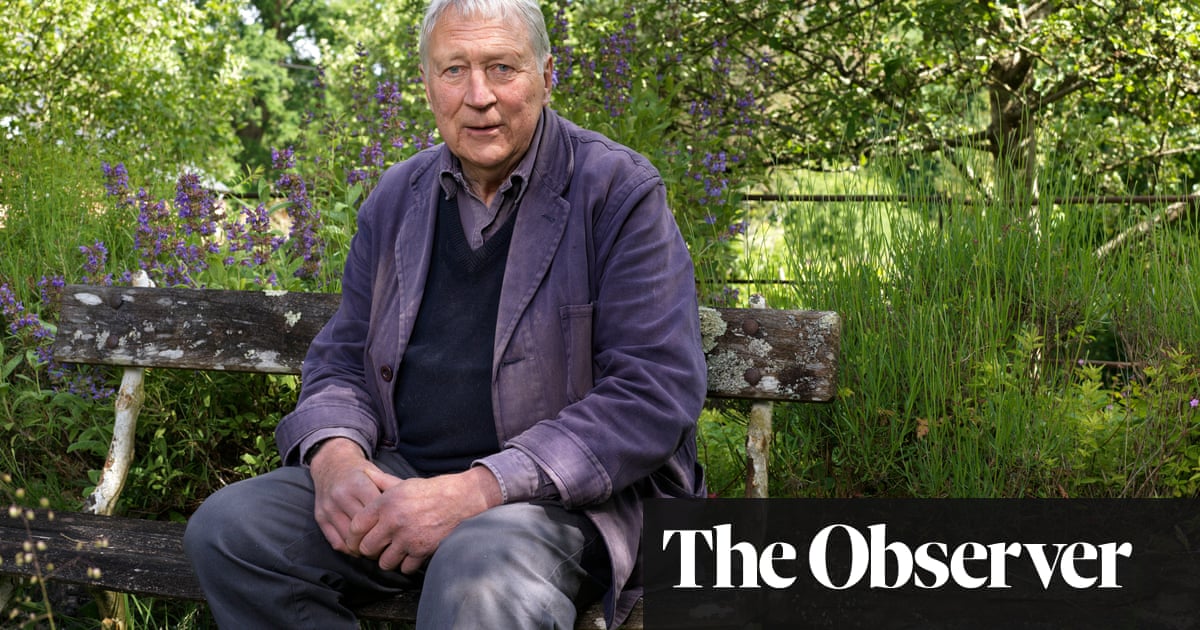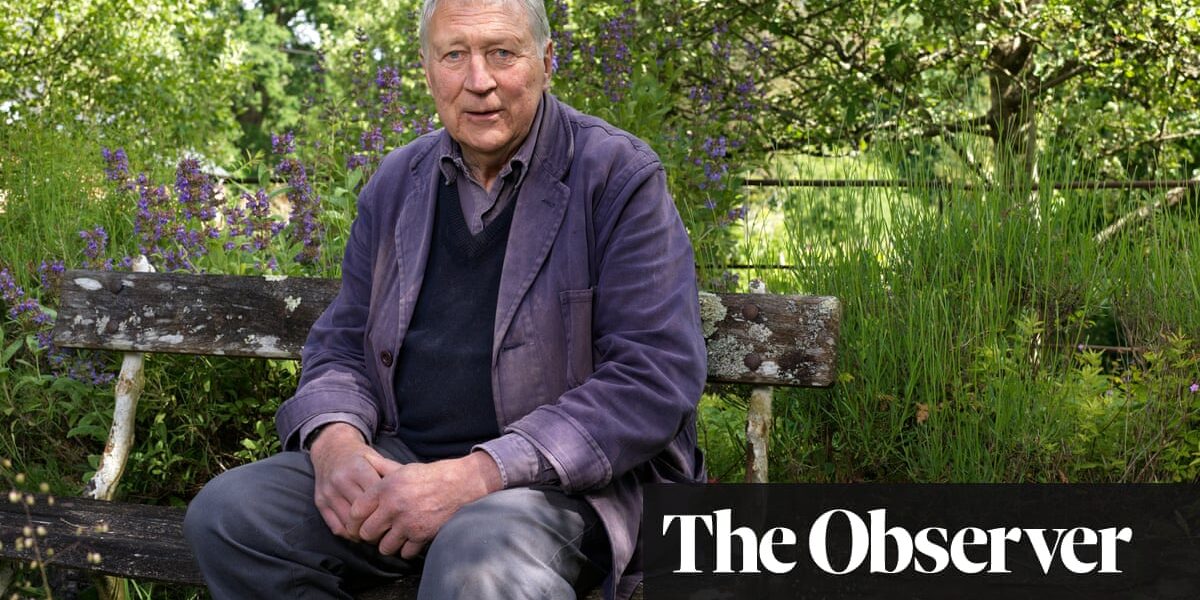
Jeremy Cooper, 77, was born in Dorset and lives in Somerset. An art historian who served as a guest expert on the Antiques Roadshow between 1979 and 1981, he’s the author of seven novels, three of them published since 2019, after he won Fitzcarraldo Editions’ novel prize (a book deal for an unpublished manuscript) with Ash Before Oak, a nature diary doubling as a “powerful… and very challenging” portrait of depression (Wall Street Journal). In his most recent book, Brian, a lonely council clerk finds solace in cinema-going. The actor Toby Jones has called it “the most extraordinary novel… the person who sent it to me did say: ‘You’d be great to play this part’”.
Where did Brian begin?
It wasn’t until the late 1980s, when I’d lived in London for nearly 20 years, that I discovered the joy of the National Film Theatre and its several cinemas, showing five or six different films every single day. I was intrigued by the sight each night of the same small group of regulars in a corner of the foyer. Speculation about the lives of these insular figures led many years later to the novel, which found its voice and form quickly over a matter of months in 2021.
How much research was required?
I didn’t do any research, nor for any other of my novels, all of which are around subjects I know and care about. Almost all the films which Brian sees I too have seen, none of them re-seen for writing the book. I’ve only ever watched film live on a cinema screen. The book was made possible in this form because, early in the process, I unearthed from the back of a cupboard the folder of information sheets I carefully kept of every film I saw from about 1985 until 2000 at the NFT [since 2007, BFI Southbank].
The novel’s charm and power lies in its unusual tone of proximity and distance from the protagonist. How did that come about?
Things fell into place once I decided that the narrative voice would be more or less inside Brian’s head, or perhaps more accurately at the side of Brian’s head. A problem arose when I wished simultaneously to write about certain films that I personally like and admire – it was a relief to find a legitimate narrative reason to develop Brian’s interest in postwar Japanese cinema.
Tell us where you write.
Never having owned a mobile phone or used any social media and not once watching television during the last 25 years, reading and writing have become central to my later life, by choice solitary. Apart from three consecutive days a fortnight in London to look at contemporary art and go to the cinema, I live alone in a secluded rented cottage in west Somerset doing the same thing at the same time seven days a week, including Christmas, which I ignore. With an orchard and wild flower meadow to care for, I nevertheless spend most of my time at a large ebonised ash desk in my study, with windows on three sides.
What else do you archive at home?
I keep what interests me and tend to find an appreciative home for material no longer relevant. A file of letters to me by [the painter] Jane Urquhart [1947-1983], the inspiration for my first novel Ruth [1986], I’ve given to the Victoria Art Gallery in Bath, together with two paintings by her. A large part of my library of contemporary art is going to the Glasgow School of Art.
When did you first have the impulse to write?
I began to write as a way of securing in my mind information about the 19th-century sculpture and furniture I was cataloguing at Sotheby’s, my first job on leaving Cambridge with a degree in the history of art. In the early 80s developers paid me a large amount of money for the short remaining lease on an inexpensive back-alley Victorian schoolroom from where I was dealing in specialised antiques, enough to allow me to concentrate full-time on writing. In 1984 I ditched my literary agent Curtis Brown, as they strongly advised me against writing fiction and since then I’ve handled all my work myself.
Has winning the Fitzcarraldo novel prize reinvigorated your interest in publishing fiction?
Without doubt. When I began writing the text which became Ash Before Oak, it was wholly for my own need, without any intention of publication. After several changes of direction I shared the typescript with a friend, who felt a public work was trying to get out.
Do you hear from readers who find that novel helpful to them?
Yes, from a surprising number, which has been emotionally moving and [a source of] encouragement. The same is happening around people identifying with Brian. Zadie Smith emailed Fitzcarraldo to say how much she liked the book and that she thought it would make a terrific film. In January we met near where she lives in Kentish Town, at Mario’s, my model for the Italian cafe in the novel. The screenplay that she and her husband, Nick Laird, subsequently wrote is being considered by two leading movie producers.
What was the last book you read?
Corey Fah Does Social Mobility by Isabel Waidner. It took some getting into, but the setting appealed – a version of Arnold Circus, location of my favourite London estate [the Boundary estate, among the UK’s oldest social housing] – and I began to appreciate the book’s inventiveness.
What kind of reader were you as a child?
In hiding away from an unhappy childhood I read continuously, too many books to pick out favourites, though Chesterton’s Father Brown stories and the Swallows and Amazons series would be on the list. The actual hardbacks are still on my shelves in their original covers – I must have been as orderly a boy as I am an adult.
after newsletter promotion
Name a writer who has influenced you.
BS Johnson. I like all his work, particularly Christy Malry’s Own Double-Entry. As I hardly ever go to the films of books I admire, the adaptation is one of the few movies which Brian sees that I haven’t.
Source: theguardian.com


